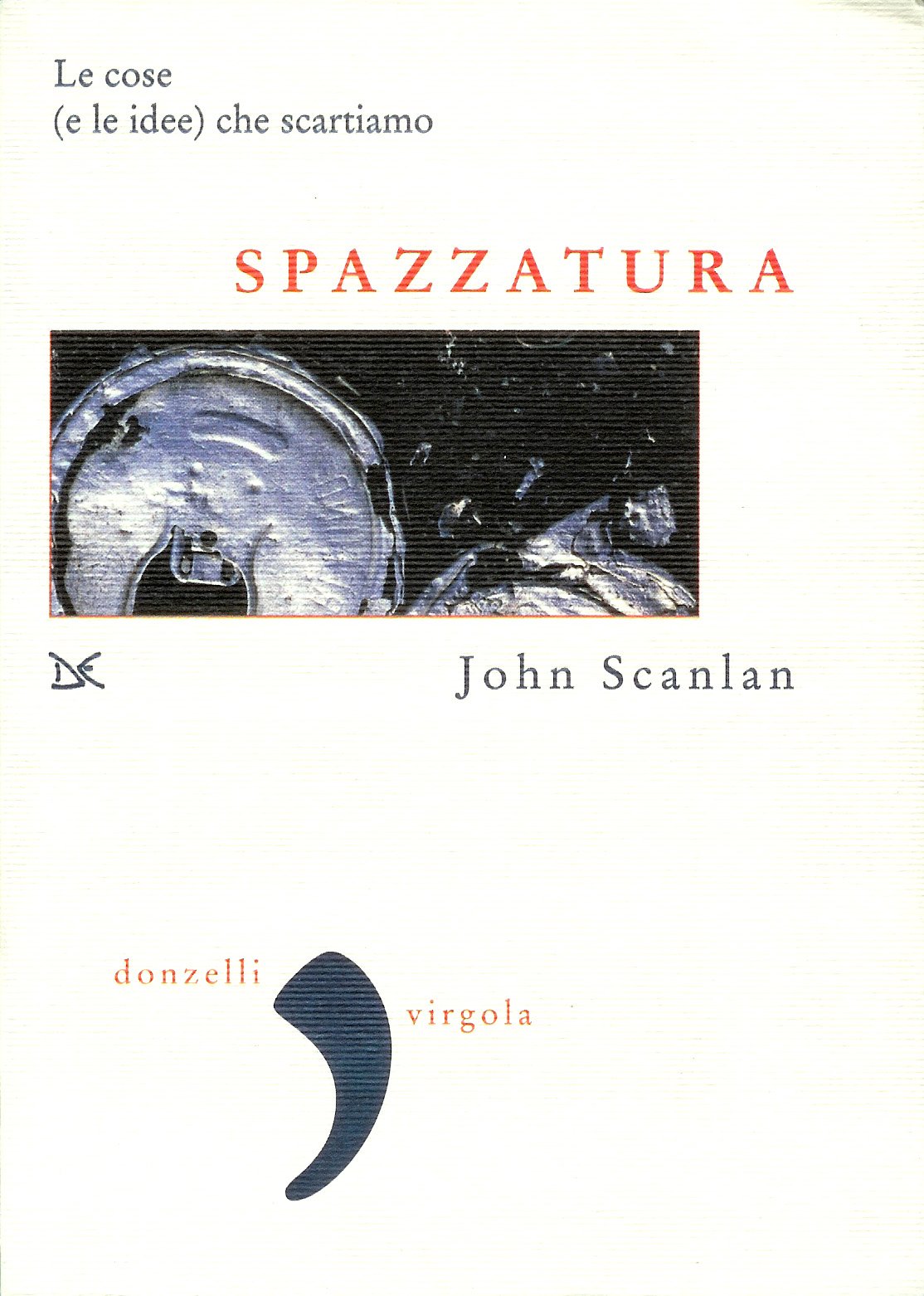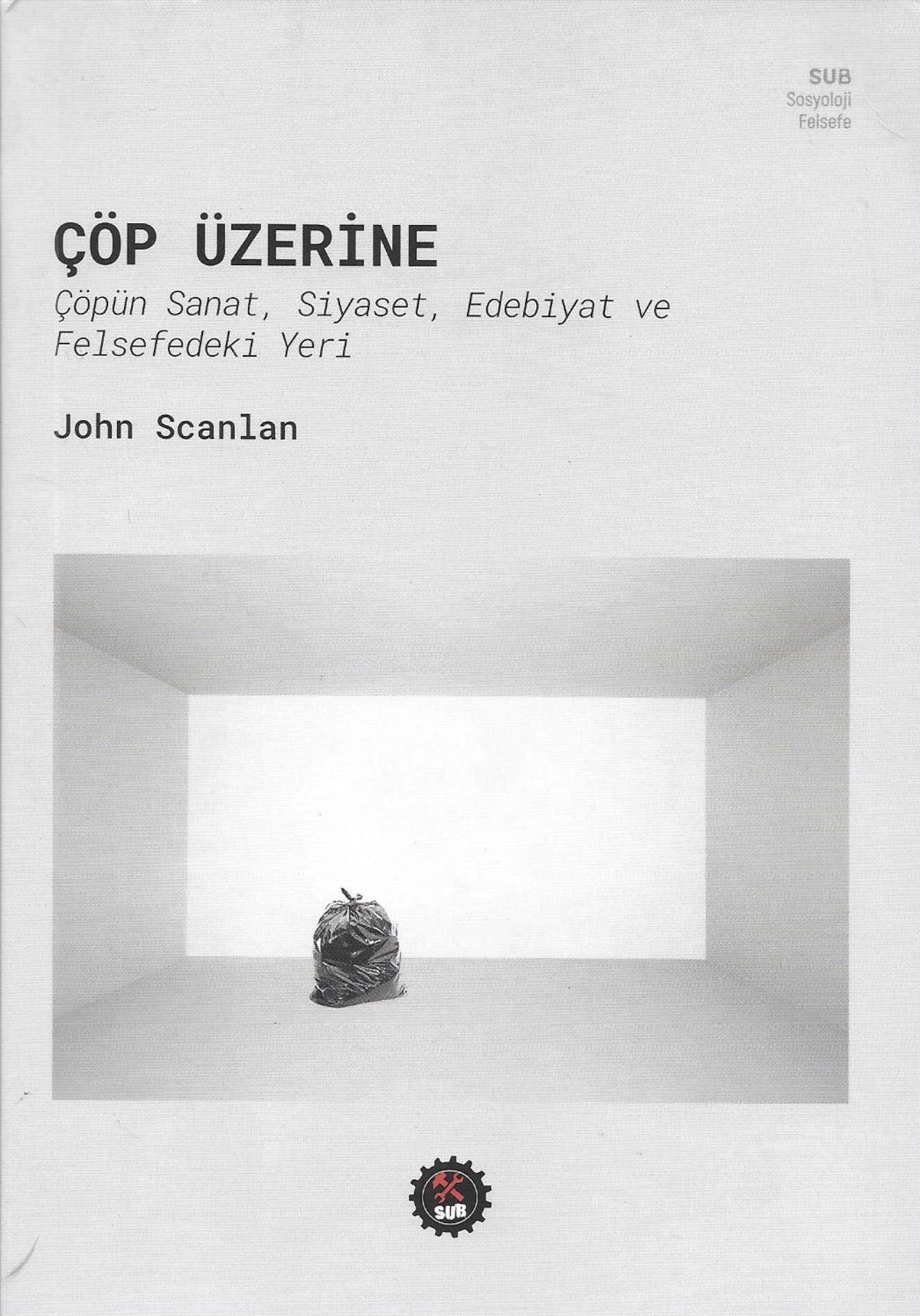On Garbage emerged out of a PhD thesis undertaken (at the University of Glasgow) in the late 1990s. 'Valuing Disorder: Perspectives on Radical Contingency in Modern Society' – as it was titled – was concerned with forms and experiences of chance and indeterminacy, and it developed its focus through three sections that looked at (i) the experience of gambling as a practical engagement with chance / indeterminacy, (ii) the aesthetics of indeterminacy in modern art, particularly in its use of waste matter, and (iii) the stuff of ‘waste’ as itself a material and spatial manifestation of disorder/indeterminact in modern societies. About half of my thesis ended up making up the bulk of On Garbage. It is a book about knowledge, time, and how we have made and understood ‘waste’.
*
From the jacket copy:
A philosophy of the worthless …
the condemned …
the discarded …
This highly original examination of our culture's wastes is intellectual scavenging at its best. For John Scanlan, 'garbage' represents more than material waste or the effects of environmental degradation; it is under stood also as 'broken' knowledge, useless concepts, and the remainders of systems of intellectual thought. On Garbage shows how Western philosophy, science and technology overcame nature by means of a prolonged act of cleansing, which is summed up not simply in the disposal of useless knowledge and redundant objects, but more generally in the separation of the human from the natural, a practice that has driven Western progress for thousands of years. In this book we see why 'garbage' the detached leftover of our progress is, perversely, the source of all that is valuable. By throwing light on the nature and extent of the wastes we have created, we can gain fresh insights into the accepted truths and deep structures of Western culture. Central to such an undertaking is the belief that we can understand the condition of contemporary life only by examining what we have thrown away.
On Garbage shows that disposal causes more than the mountains of rubbish we sometimes fear will overwhelm us; it also creates a host of other 'garbage', particularly in the all-too-often abject reality of our disposable lives. lt seems, indeed, that we ourselves have become the garbage of our times. This bold and thought-provoking book will interest readers in areas as diverse as cultural studies and social theory, the histories of philosophy, public health and the environment, and the aesthetics of contemporary art.
216 × 138 mm
208 pages + 31 b&w illustrations
Paperback
ISBN: 9781861892225
Editions
Reaktion Books (Nov 2004)
University of Chicago Press (March 2005)
Reviews
‘There is such a fine Montaignesque scope to On Garbage ... [a] little masterpiece ... Scanlan [is] an essayist of the first order ... For readers who wonder why we will pay to see Mel Gibson’s faux-Christ crucified in lovely, bloody big-screen Technicolor but can’t abide or aren’t allowed to witness executions on TV or dead soldiers brought back in flag-draped boxes from Iraq; for those who wonder how the species that rises to the horrendous occasions of September 11, 2001, or the recent tsunami, searching for body parts at Fresh Kills Landfill or sorting through corpses for signs of life; how the same human kind could look away from famine and holocaust, Rwanda and Darfur, Scanlan’s inquiries cast some light among the shadows in the dark. Like a wide-eyed miner up from the underworld, what he tenders in On Garbage looks like gold.' - Thomas Lynch, The Times
'[I'm reading] John Scanlan's On Garbage, [because] it addresses reasons why we find rubbish, which is a by-product of ourselves, so abhorrent.' -- Michael Landy, Artist-in-Residence, Royal Academy of the Arts, in The Independent, 2009.
'The designed object, in all its freshness, attempts to freeze time in order to capture a state of perfection; its shadow, waste, commits the unforgivable crime and reminds us of decay, and with this the passage of time. This is why John Scanlan, in his brilliant book, On Garbage, says that "garbage is also the broken knowledge that lies in the wake of (and the way of) progress."' -- Jeremy Till, Professor of Architecture, Central Saint Martins, University of the Arts
‘Scanlan’s discursive romp in the field of garbage, muck-raking in the intellectual landfills is rather diverting . . . The story of rubbish, as Scanlan persuasively argues, is the story of culture.’ -- Steven Poole, The Guardian
' ... an important essay on the philosophy and sociology of waste [ ... ] Scanlan argues that waste was at the heart of modernity. In post-Enlightenment Europe 'improvement' was conceived of as the detaching, or displacing, of the valueless from the valuable; waste therefore became an inescapable by-product of progress.' -- Timothy Cooper, Department of History, University of Exeter
‘Highly different, intellectually intriguing and happily stimulating stuff -- The Herald (Glasgow)
Other Info
Related Media
BBC Radio 3 'Night Waves' (18 March 2005). An interview about On Garbage with Isobel Hilton, followed by a discussion with the writer Iain Sinclair and Rochelle Steiner, curator of the Serpentine Gallery, London.
'The Philosopher's Zone', 21 January 2006. An interview with Alan Saunders, regarding On Garbage and broadcast on ABC Radio National's (Australia) Mainly concerned with John Locke and philosophy.
ABC Radio National 'Perspective' (16 February 2006). A reading of a short piece about waste in ABC Radio National's equivalent to BBC Radio 4's 'Thought for the Day' strand.
BBC Four TV, 'The Secret Life of Rubbish' (2012). Featured as interviewee in both parts of the series.
Radio Student, Ljubljana, Slovenia (2013). An interview on the intellectual, material and cultural dimensions of waste.
Available from:
Other editions
Çöp Üzerine-Çöpün Sanat Siyaset Edebiyat ve Felsefedeki Yeri (Istanbul: Sub Press, 2019). Turkish translation.
النفايات (Abu Dhabi: Kalima, 2017). Arabic translation.
Spazzatura: le cose e le idée che scartiamo (Roma: Donzelli, 2006). Italian translation.



